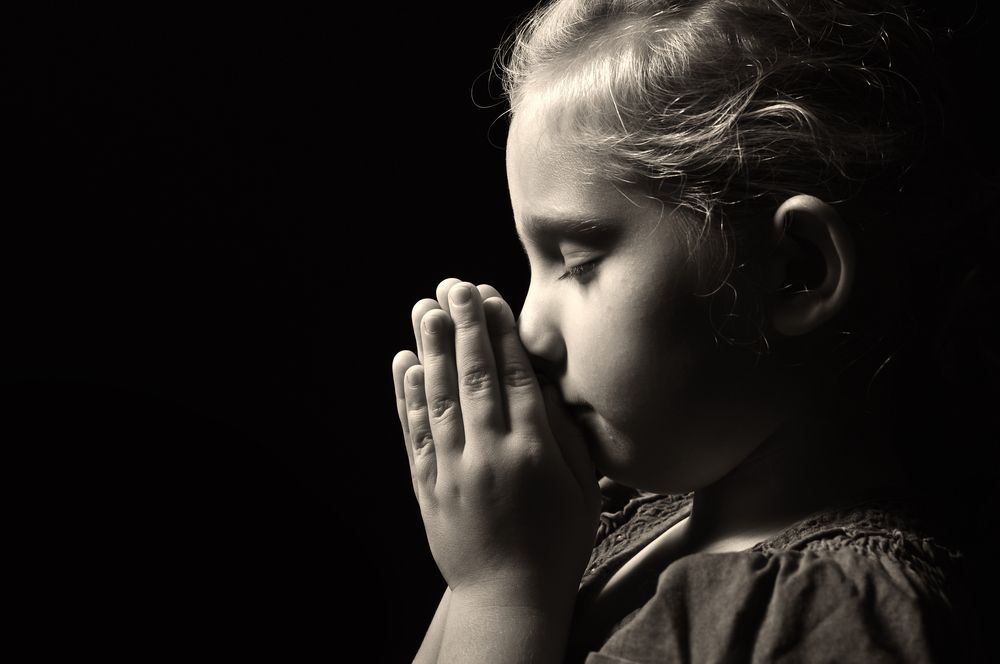Faith Healing: Is It Child Abuse?

Two-year-old Kent Schaible died of bacterial pneumonia in 2009.
His parents, Herbert and Catherine Schaible of Philadelphia, chose not to take Kent to a doctor, relying instead on faith healing, according to the Philadelphia Daily News.
"We tried to fight the devil, but, in the end, the devil won," Herbert Schaible said at the time.
When they appeared before a judge in 2011, the Schaibles promised they would never again avoid medical attention for their remaining children, despite the tenets of their fundamentalist church, the First Century Gospel Church. [8 Ways Religion Impacts Your Life]
But last Thursday (April 18), their 7-month-old son Brandon died after suffering severe diarrhea. The couple prayed over their son until he passed away.
What is faith healing?
Faith healing, the belief that diseases and injuries can be healed through the intervention of a higher power, is as old as human civilization, according to the American Cancer Society (ACS).
Sign up for the Live Science daily newsletter now
Get the world’s most fascinating discoveries delivered straight to your inbox.
A number of religious organizations — including Christian Scientists, the Church of Jesus Christ of Latter-Day Saints (the Mormon Church) and the Catholic Church — recognize some degree of faith healing or divine intervention in health matters.
However, only the most extreme, fundamentalist sects of these churches advise their congregations to avoid all professional medical attention.
Does faith healing work?
There have been no scientific studies that affirm the efficacy of faith healing. In fact, medical research has found that faith healing has a dismal track record.
A 1998 study from the journal Pediatrics found that of 172 children who died after their parents refused medical care, 140 of the deaths were from conditions for which survival rates with medical care would have exceeded 90 percent.
The children's deaths resulted from treatable diseases, such as pneumonia, meningitis and insulin-dependent diabetes. In one dramatic case, a 2-year-old girl choked to death on a banana while her parents and other adults prayed for her recovery.
Nonetheless, in some cases, the ACS says, belief in a cure can trigger a placebo effect, in which a person believes a treatment will work even though there's no evidence that it will. This belief can help a patient feel better and cope with their condition more effectively.
Faith healing and the law
Faith healing is subject to a number of state laws and exemptions, many of which shield parents from prosecution even when their child dies of an easily treated illness.
According to a 2011 report in the Canadian Medical Association Journal (CMAJ), 19 U.S. states still allow religious exemptions for crimes against children, including child neglect, manslaughter and murder.
"Children who have died in these cases suffer seizures, vomiting," Dr. Seth Asser, a Rhode Island pediatrician, told the CMAJ. "Their deaths are agonizing, slow and extremely painful."
Asser and Rita Swan, founder of Children's Healthcare Is a Legal Duty (CHILD), argue that judges and legislators often fail to acknowledge the risks inherent in faith healing, especially when children are involved, according to the CMAJ report.
A judicial rebuke
The Schaibles once again found themselves in court, where Judge Benjamin Lerner issued a blistering rebuke to the couple.
"I am sorry for your loss. Deeply sorry," Lerner told the Schaibles. "But in all honesty, I am more sorry for the fact that this innocent little child will not be able to grow up to be what he wanted to be."
Because the couple "knowingly, intentionally, hypocritically and callously violated" the most critical term of the probation they received after the death of their son Kent, they now face up to 10 years in prison.
Their seven remaining children have been removed from their home by the Philadelphia Department of Human Services.
Follow Marc Lallanilla on Twitter and Google+. Follow us @livescience, Facebook & Google+. Original article on LiveScience.com.













